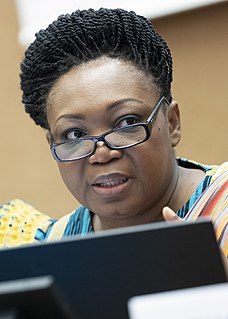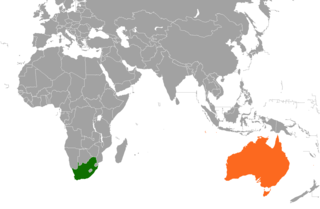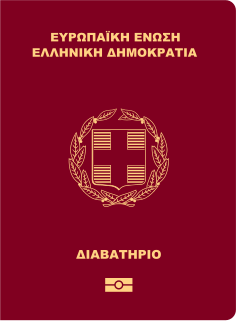The implementation of the Dayton Accords of 1995 has focused the efforts of policymakers in Bosnia and Herzegovina, as well as the international community, on regional stabilization in the countries-successors of the former Yugoslavia. Relations with its neighbors of Croatia, Montenegro and Serbia have been fairly stable since the signing of the Dayton Agreement in 1995.

Nicaragua pursues an independent foreign policy. A participant of the Central American Security Commission (CSC), Nicaragua also has taken a leading role in pressing for regional demilitarization and peaceful settlement of disputes within states in the region.

The Israel Lobby and U.S. Foreign Policy is a book by John Mearsheimer, Professor of Political Science at the University of Chicago, and Stephen Walt, Professor of International Relations at the Kennedy School of Government at Harvard University, published in late August 2007. It was a New York Times Best Seller.
TransAfrica is an advocacy organization in Washington, D.C. that seeks to influence the foreign policy of the United States concerning African and Caribbean countries and all African diaspora groups. They are a research, education, and advocacy center for activism focusing on social, economic and political conditions in Africa, the Caribbean, and Latin America and other parts of the African Diaspora. They are the largest and oldest social justice organization in the United States that focuses on the African world. They have served as a major research, educational, and organizing institution for the African and African Descendant communities and the U.S. public in general.

Patrick Mendis (帕特里克·孟迪斯) is an educator, diplomat, author, and executive in government service in the United States. A former American diplomat during the Clinton and Bush administrations, he is now serving as a commissioner of the U.S. National Commission for UNESCO at the State Department.
Sino-Third World relations refers to the general relationship between the two Chinese states across the Taiwan Strait and the rest of the Third World, and its history from the Chinese perspective.

Nnenna Nwakanma is a Nigerian FOSS activist, community organizer, development adviser. She worked for the United Nations for 15 years and she was the Interim Policy Director for the World Wide Web Foundation

Australia–South Africa relations are foreign relations between Australia and South Africa. Australia has a High Commission in Pretoria. South Africa has a High Commission in Canberra. Both countries are former British colonies in the southern Hemisphere, share similar cultures in terms of sports and language, and are members of the Commonwealth of Nations.

Visa requirements for Thai citizens are administrative entry restrictions imposed on citizens of Thailand by the authorities of other states. As of 02 July 2019, Thai citizens had visa-free or visa on arrival access to 74 countries and territories, ranking the Thai passport 70th in terms of travel freedom according to the Henley Passport Index.

Visa requirements for Bruneian citizens are administrative entry restrictions by the authorities of other states which are imposed on citizens of Brunei. As of 2 July 2019, Bruneian citizens had visa-free or visa on arrival access to 164 countries and territories, ranking the Bruneian passport 22nd in terms of travel freedom according to the Henley & Partners Passport Index.

Visa requirements for Latvian citizens are administrative entry restrictions by the authorities of other states placed on citizens of Latvia. As of 2 July 2019, Latvian citizens had visa-free or visa on arrival access to 179 countries and territories, ranking the Latvian passport 10th in terms of travel freedom according to the Henley Passport Index.

Visa requirements for Greek citizens are administrative entry restrictions by the authorities of other states placed on citizens of Greece. As of 2 July 2019, Greek citizens had visa-free or visa on arrival access to 183 countries and territories, ranking the Greek passport 6th in terms of travel freedom according to the Henley Passport Index.
The Luke Priddis Foundation (LPF), established in 2006 by rugby league player Luke Priddis, is a charitable organisation with the aim to “maximise the services and opportunities available to children with Autism Spectrum Disorder (ASD) and their families in the greater Sydney region.”
Mwiza Munthali is a Malawian born activist and specialist in Africa and African Diaspora affairs. He is the host of Washington DC based Pacifica radio show "Africa Now!". Africa Now! is a radio show that discusses topical issues pertinent to Africans and the African diaspora in Africa, the Caribbean, and the Americas. He is also the public outreach Director of TransAfrica Forum a policy advocacy organisation. At Trans Africa Forum he maintains communication links with information specialists of various multilateral agencies, U.S. government offices, and African and Caribbean embassies and organizations.

Visa requirements for Cambodian citizens are administrative entry restrictions imposed on citizens of Cambodia by the authorities of other states. As of 02 July 2019, Cambodian citizens had visa-free or visa on arrival access to 51 countries and territories, ranking the Cambodian passport 93rd in terms of travel freedom according to the Henley & Partners Passport Index.

The Mortara Center for International Studies is an academic research center at Georgetown University in Washington, DC. As part of Georgetown's Edmund A. Walsh School of Foreign Service, the Mortara Center organizes and co-sponsors lectures, seminars, and conferences and provides support for research and publications on international affairs. The current Director of the Mortara Center is Associate Professor and Chair of the Georgetown University International Theory and Research Seminar (GUITARS) Abraham Newman. Past Directors include Kathleen R. McNamara, John McNeill, Carol Lancaster, Charles Kupchan, and John Ikenberry. Former United States Secretary of State Madeleine Albright is the Michael and Virginia Mortara Distinguished Professor in the Practice of Diplomacy. The Mortara Center was established through a gift from the Michael and Virginia Mortara Foundation.

















